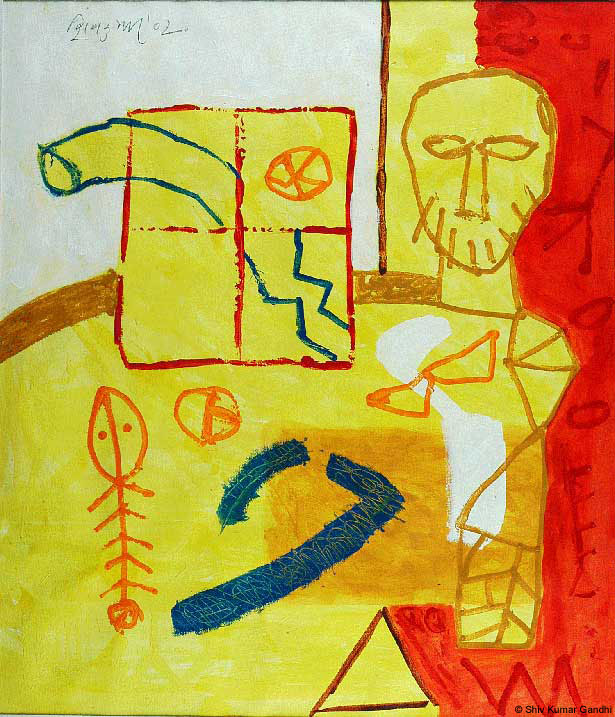प्रतिलिपि प्रश्नावली/Pratilipi Questionnaire

KRISHNA BALDEV VAID
1. Have you ever felt ‘terrorized’ by something? Have you ever told / described it to someone? Has it found an expression in your work?
My supreme personal experience of terror was in 1947 when I spent I don’t know how many hours (they felt like an eternity) hiding along with five members of my family and three other frightened individuals in a hovel provided to us by our Muslim protector who was participating actively in the terror going on in that town, Dinga, now in Pakistan. I was face to face with the possibility of brutal death or mutilation, along with the others, either at the hands of our protector or the other marauders shouting and rushing about. As it turned out our protector kept his promise and we were eventually rescued by the military and taken to a temporary camp.
Yes, I’ve thought and dreamt and talked about it more than once in some interviews with Alok Bhalla and Andrew Whithead — and used it in my novel Guzara Hua Zamana (The Broken Mirror).
2. At a psychological / aesthetic / philosophical level, can terror be ‘represented’ in art? Would you like to name certain works (art/writing) in which it has been done effectively?
Yes, it can be and has been. Guernica (sp?) comes to mind and so does Toba Tek Singh.
3. Which would you consider to be the most terrorizing moment / event / ideology you have known?
For me the Partition and the savagery surrounding it represent the extreme of terror in all its evilness. Had I been a witness to the Holocaust in Europe, I’d have mentioned that as the most shattering experience. Nazi ideology is the worst and so is any fundamentalist creed or agenda that implicitly or explicitly believes in ethnic cleansing. And, unhappily, there are several such all around.
4. How do you respond to the rhetoric of terror(ism) in mainstream media and politics?
I find it disgusting and dangerous and asinine.
5. Have the (serial) blasts around made you feel insecure?
Yes alas they have made me feel insecure and apprehensive and angry but not altogether without hope.
I don’t know why, but this line has been one of the most comforting in recent times: “we are not as important in the universe as we might believe.” Thanks Sameer!